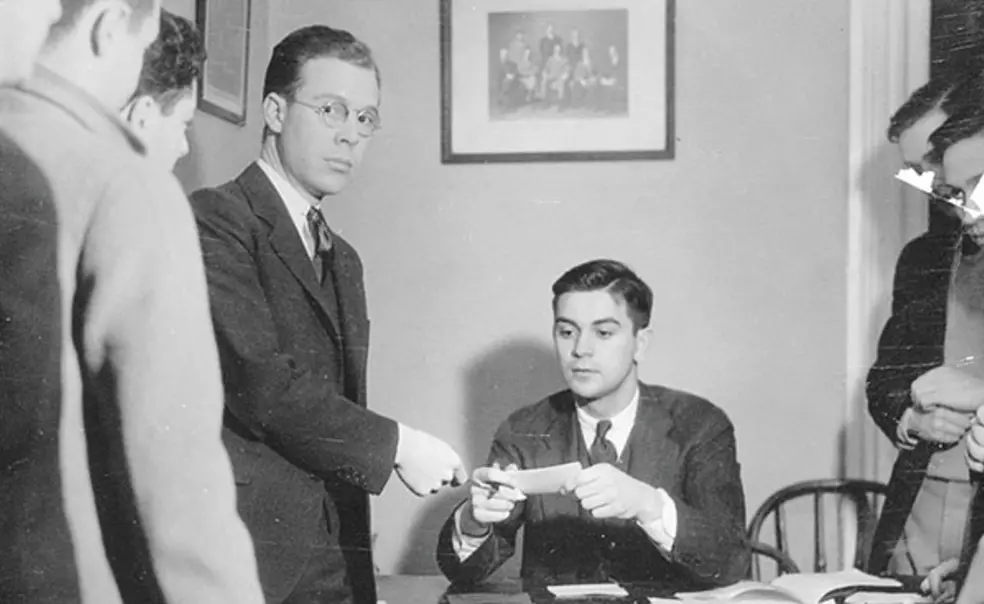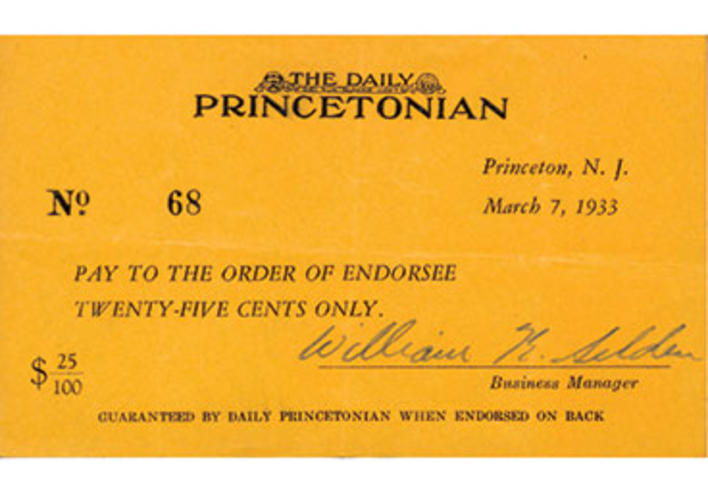By 1933, the Great Depression had eroded public confidence in America’s banks. Thousands had failed, and that winter, all 48 states declared “bank holidays” to curb the runs that threatened their financial institutions. On March 6, President Franklin D. Roosevelt took similar action on a national level — what he would call “the first step in the Government’s reconstruction of our financial and economic fabric.”
New Jersey had closed its banks March 4 in a measure that The Daily Princetonian soothingly described as “purely preventative, rather than remedial.” With respect to Princeton, the editors continued, “it is sheer folly to fear for the safety of one’s account in any of the financial institutions here. ... It must be remembered that Princeton is essentially a residential, rather than an industrial or an agricultural community, and is therefore under a far less serious strain than most American cities and towns.”
Be that as it may, students were confronted with the awkward fact that in a pre-plastic era, their accounts were inaccessible and would remain so until March 15, when Princeton’s banks reopened. Into this breach stepped the Prince, which, in return for checks, issued scrip certificates “acceptable in trade with numerous local houses of business.” In addition to the Princeton University Store, participating establishments ranged from eateries such as Renwick’s to drugstores such as Thorne’s; from Jack Honore’s Barber Shop to Harry Ballot’s clothing store; and for those craving finer things, from LaVake’s jewelry store to Viedt’s Chocolate Shop.
Blessed by the University’s administration and welcomed by New Jersey Gov. A. Harry Moore, the scrip was limited to $5 per student, giving each a purchasing power of more than $90 in today’s money. The scrip proved so popular that in one day, 2,000 certificates in 25-cent denominations were distributed, exhausting the $500 committed to the venture. Redemption commenced the day that Princeton’s banks reopened and as the nation’s panic eased — a success by any measure.
John S. Weeren is founding director of Princeton Writes and a former assistant University archivist.













1 Response
Bruce Leslie ’66
8 Years AgoIf you would like to hear...
If you would like to hear Bill Selden '34's account of it, go to his oral history in the Mudd Archive at: https://findingaids.princeton.edu/collections/AC259/c039